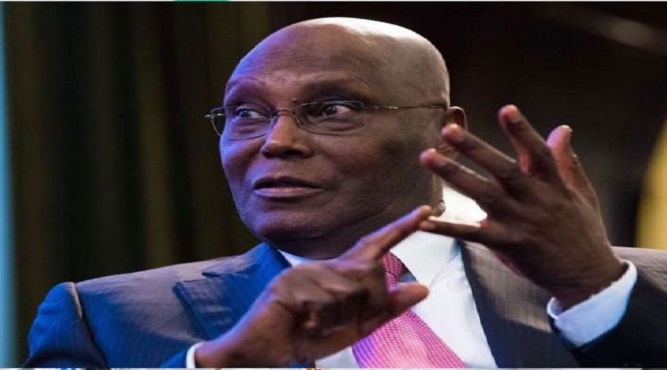Atiku rejects shutdown of cryptocurrency transactions
Former Vice-President Atiku Abubakar has kicked against the shut down of Cryptocurrency transactions by the Central Bank of Nigeria. In a statement released in the early hours of Saturday, Atiku said the move is wrong at a time of economic crisis. COVID-19 may have spread in Wuhan, but originated elsewhere – WHO expert Nagarta: The […]

Fomer Vice President Atiku Abubakar
Former Vice-President Atiku Abubakar has kicked against the shut down of Cryptocurrency transactions by the Central Bank of Nigeria.
In a statement released in the early hours of Saturday, Atiku said the move is wrong at a time of economic crisis.
- COVID-19 may have spread in Wuhan, but originated elsewhere – WHO expert
- Nagarta: The 115-Year-Old College That Produced Shehu Shagari, Ahmadu Bello and other Great Nigerians
Describing youth unemployment an emergency in the country, he wondered why the government decided to restrict the inflow of capital into the country.
“The number one challenge facing Nigeria is youth unemployment. In fact, it is not a challenge, it is an emergency. It affects our economy, and is exacerbating insecurity in the nation.
“What Nigeria needs now, perhaps more than ever, are jobs and an opening up of our economy, especially after today’s report by the National Bureau of Statistics indicated that foreign capital inflow into Nigeria is at a four year low, having plummeted from $23.9 billion in 2019, to just $9.68 billion in 2020.
“Already, the nation suffered severe economic losses from the border closure, and the effects of the #COVID19 pandemic. This is definitely the wrong time to introduce policies that will restrict the inflow of capital into Nigeria, and I urge that the policy to prohibit the dealing and transaction of cryptocurrencies be revisited.
“It is possible to regulate the sub sector and prevent any abuse that may be inimical to national security. That may be a better option, than an outright shutdown.
“There is already immense economic pressure on our youths. It must be the job of the government, therefore, to reduce that pressure, rather than adding to it. We must create jobs in Nigeria. We must expand the economy. We must remove every impediment towards investments. We owe the Nigerian people that much.”
